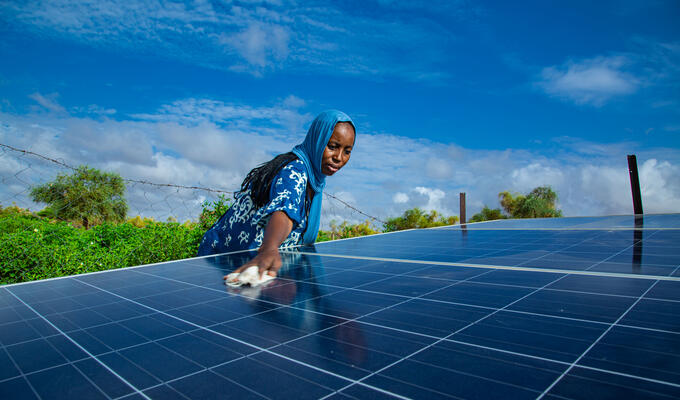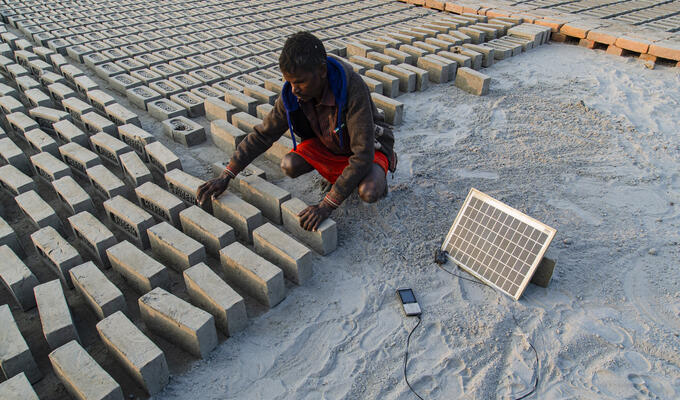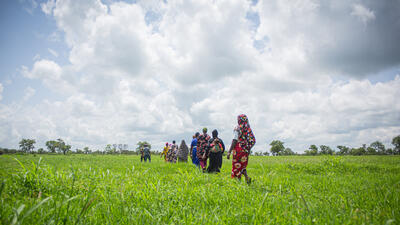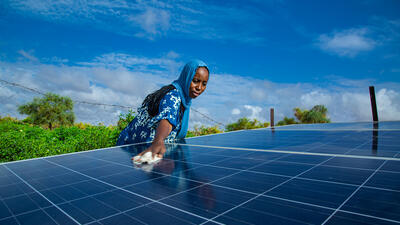

What does climate change mean for small businesses in developing countries?
A new report on climate change mitigation released by the Intergovernmental Panel on Climate Change (IPCC) presents a window of opportunities for small businesses in trade.
In April 2022, the Intergovernmental Panel on Climate Change (IPCC) released a report on climate change mitigation that calls for immediate and deep carbon emission reductions to limit global warming to around 1.5°C (or 2.7°F). The United Nations Secretary-General António Guterres warned that “we are on the fast track to climate disaster”. Scientists advise that we must leverage all tools in all sectors to halve emissions by 2030.
The report urges financiers to invest in climate solutions that remain underfunded and close the funding gap in developing countries to enhance climate actions and increase resilience.
Developing countries need funds to adapt
There is a strong link between sustainable development, vulnerability and climate risks. Limited economic, social and institutional resources often result in high vulnerability and low adaptive capacity of businesses and communities in developing countries.
Besides being the most affected, least developed and developing countries are not equipped for taking the necessary climate actions, thus needing financial support from developed countries to cut emissions and adapt to the many facets of climate change. Moreover, innovation, facilitated by digitalization, has lagged in developing countries due to absent or inadequate regulations and financial constraints.
The International Trade Centre’s SME Competitive Outlook 2021 found that small firms in developing countries are more worried about climate change, but less likely to act. Only 38% of small firms that the International Trade Centre (ITC) surveyed acted to reduce environmental risks. Moreover, women and youth-led small firms are even less likely to invest in adaptation.
Transition opportunities for small businesses in developing countries
The IPCC report urges country leaders to phase out fossil fuels and put energy transition as the highest priority. The drop of renewable energy and green technologies price present opportunities for accelerating low-carbon transition in developing countries.
Small businesses can benefit from the affordable price of renewables while tapping into new business opportunities for green products and services. Norah Magero, founder of Drop Access, developed a practical and affordable solution, a solar-powered refrigerator, to address energy access challenge in the rural areas of Kenya. This is a great example of how innovation benefits the communities that need it the most.
Dramatic emission reduction will also require efficient use of materials, reusing and recycling products to minimize waste. The shift from a linear to a circular economy must be applied to all sectors. RecycleX, a green venture based in India, has proven that small businesses can and should contribute to the circular economy. They turn used PET bottles into bricks – fighting plastic waste while creating a greener and healthier alternative to traditional concrete.
Scaling up technology and innovation key to trigger large-scale transformation
ITC suggests three ways to step up climate mitigation efforts:
1. Policy
International cooperation is a critical enabler for achieving ambitious climate change mitigation goals. International environmental and sectoral agreements, institutions, and initiatives are helping, and in some cases may help, to stimulate low carbon investment and reduce emissions.
Trade rules have the potential to stimulate international adoption of mitigation technologies and policies but may also limit countries’ ability to adopt trade-related climate policies. Therefore, clear signaling by governments and the international community, including a stronger alignment of public-sector finance and policy, and higher levels of public-sector climate finance, reduces uncertainty and transition risks for the private sector.
2. Finance
The report finds that investment in the shift to a low-carbon world is about six times lower than it needs to be. The challenge of closing investment gaps is largest in developing countries. Scaling up mitigation financial flows can be supported by clear policy choices and directions from governments as well as the international community. The report suggests that mitigation options costing $100 per tonne of CO2 or less could reduce global greenhouse gas emissions by at least half the 2019 level by 2030.
3. Behavioral change
Effective and equitable climate governance builds on collective actions taken not only by policymakers, financiers, businesses, but also individuals. Individuals can play a role in slowing climate change by making sustainable choices when buying products and services and driving demand for the industry to change.
COP27 Outlook
“Increasingly, transitioning to a low carbon and resilient economy is the safest and most competitive choice any country, business or investor can make,” stated Egypt’s foreign minister, Sameh Shoukry, together with United Nations climate chief, Patricia Espinosa, and Alok Sharma, the UK cabinet minister – ahead of COP27.
The International Trade Centre looks forward to playing an active role in supporting policymakers to limit the warming at 1.5° level in a way that is fair to all market partners and developing countries, and to ensure that small businesses and trade are aligned with the climate agenda.
ITC’s Executive Director Pamela Coke Hamilton says in this regard: “Putting micro, small and medium-sized enterprises at the heart of the trade and environment agendas will reduce the climate change impacts on each of us - by helping them reduce their carbon footprint, use resources more efficiently and strengthen resilience to climate shocks.”










